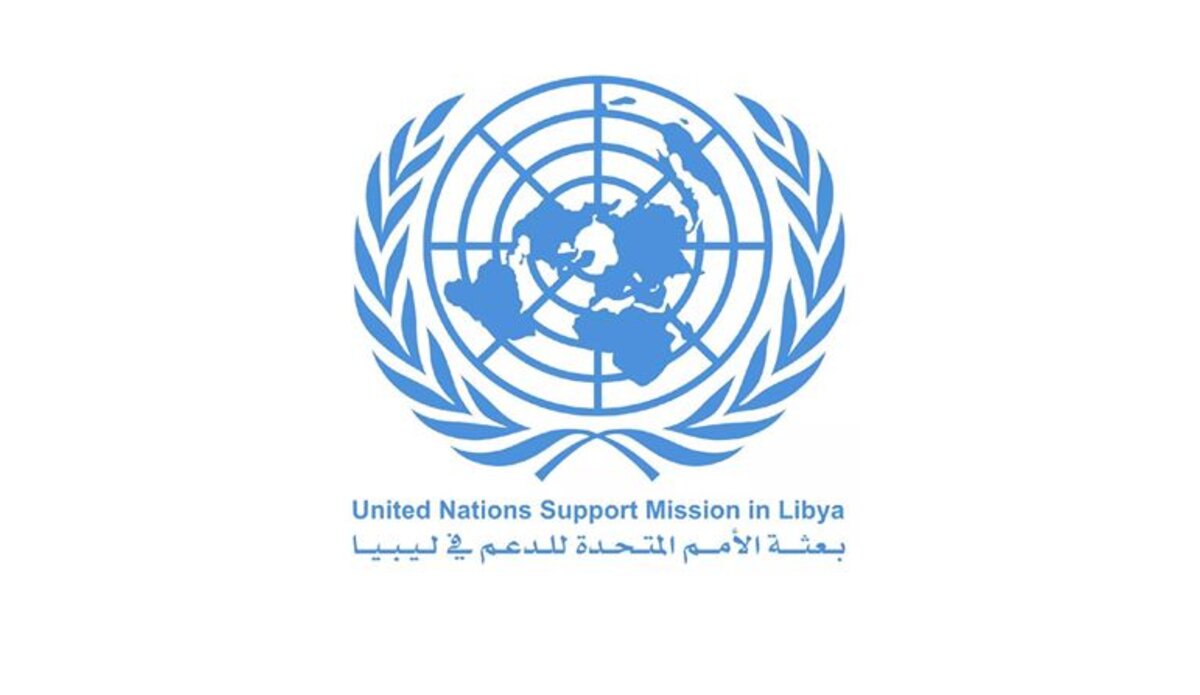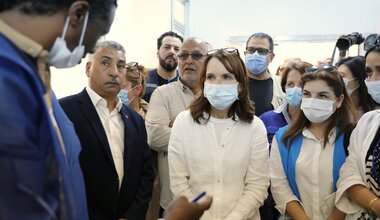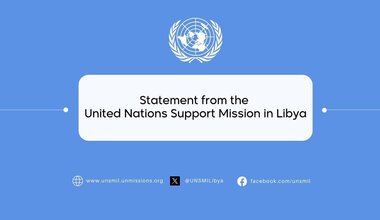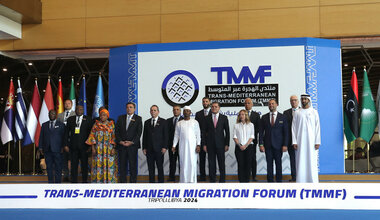UNSMIL Convenes Libyan Economic Meeting to Agree on Critical Reforms
15 December 2020 - On 14-15 December 2020, With the generous support of the Government of Switzerland, UNSMIL’s Acting Special Representative of the Secretary General Stephanie Williams, together with the co-chairs of the Economic Working Group, the USA, EU and Egypt, convened a meeting of representatives of Libyan economic institutions in Geneva to develop critical economic reforms and restore public confidence in the management of Libya’s economy. This effort to coordinate national economic policy included representatives from both branches of the Central Bank of Libya (CBL) and the Ministry of Finance, the National Oil Corporation (NOC), the Audit Bureau, the Ministry of Planning as well as independent Libyan economic experts. The World Bank also attended the meeting.
Participants agreed that the current economic situation is unsustainable and that Libyan institutions must take steps towards functional unification, operate transparently and prove that they can effectively respond to the needs of the people. In this regard, participants welcomed the announcement that the Board of Directors of the CBL would resume regular meetings starting on 16 December. Participants developed recommendations to unify the exchange rate to ensure greater stability of the Libyan currency and combat corruption. Participants also welcomed the CBL plan to address the banking crisis in a manner that rebuilds confidence in the banking sector and ensures nationwide access to liquidity.
Participants outlined steps to consolidate the national budget. This includes unifying and rationalizing the public sector payroll, allocating sufficient funding for development and infrastructure throughout the country, effectively managing the mounting national debt and address the COVID-19 pandemic.
As discussions continue on these issues, oil revenues received since September have been frozen at the Libyan Foreign Bank. To overcome this situation, participants will work in good faith to restore access to oil revenues by developing solutions that address the underlying challenges that necessitated the freeze. Participants noted the importance of timely budget allocations for the NOC and called for all parties to desist from any acts of intimidation against the NOC.
The participants agreed to meet again in January to review progress on these issues and consider further technical steps needed to stabilize the Libyan economy and respond to the needs of all Libyans.
 United Nations Peacekeeping
United Nations Peacekeeping UN
UN








